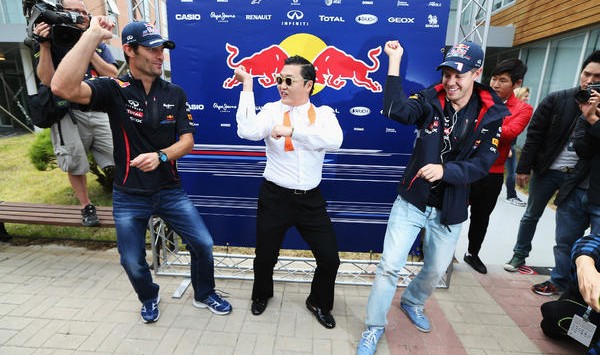
Successful Branding: Bulls vs Dinosaurs
Players at next week’s Australian PGA Championship have been reminded to be careful of their comments of the event with social media. Ironically, it has become one of the most talked about events in Australian sport – and this all due to the erection of a few dinosaurs around the golf course.
With all the comments about whether this detracts from the traditional form of the game or whether it is good for the game itself, it is generating “buzz”. And in business, sustainable value can be generated by transforming “buzz” into intangible assets – just look at the story of Red Bull.
Red Bull was one of the first beverage companies to successfully market their brand rather than the flavour of their drink. Their marketing strategy relies on getting their name out by whatever means it can – owning winning Formula 1 teams, world-record attempt space jumps, Air Racing…
Generating buzz is not hard to do (exhibit A with the dinosaurs), but value creation relies upon turning that buzz into a sustainable brand. The real key to Red Bull’s success has been the ownership of all media content. Creation, production and distribution all occurs within their Media House. As a result, Red Bull have been able to tailor and guide the brand at every stage, resulting in the brand itself becoming arguably more valuable than the drink.
If Clive’s marketing strategy fails with his dinosaurs, maybe he should focus on snaring a Tiger instead?…
This post was contributed by a representative of Montgomery Investment Management Pty Limited (AFSL No. 354564). The principal purpose of this post is to provide factual information and not provide financial product advice. Additionally, the information provided is not intended to provide any recommendation or opinion about any financial product. Any commentary and statements of opinion however may contain general advice only that is prepared without taking into account your personal objectives, financial circumstances or needs. Because of this, before acting on any of the information provided, you should always consider its appropriateness in light of your personal objectives, financial circumstances and needs and should consider seeking independent advice from a financial advisor if necessary before making any decisions. This post specifically excludes personal advice.
INVEST WITH MONTGOMERY
What you mention in regards to the masters is the same that goes on in the A-League and Big Bash league.
The A-League especially is one that i have followed with interest as i supported a side in the NSL which never got picked up to be part of the A-League and now is in the NSW state League.
I think the FFA are still not getting it right. The use of the marquee player is great at creating buzz but it is unsustainable in keeping the crowds once they have attracted them (if they do). These marquee players are usually well past their prime and at the end of their career but are big names. Mostly they add little to no value to the team they join. It is especially unsustainable as they appear to be (or were at least) marketing the game as fashion which is fickle and i think the crowds showed it. It missed the core ingredient which every good brand needs………an emotional attachment to the product by the customer.
People go to the Aussie masters, i imagine, as they have that attachment that they will be seeing the biggest, most prestigious and best golf tournament Australia has. People will line up for hours to get the new iPhone or iPad because they have that attachment to the apple brand. Avid Coke drinkers will refuse to even entertain the thought of drinking Pepsi and vice versa. Red Bull does it well as well by alligning itself with high energy, innovative events and sports and there for people will link Red Bull with that type of behaviour.
Most importantly,
A brand is more than a name, it is the feeling you create in the customer when they are exposed to it or how they identify with it. This is why so many so called “big brands” fail to get the very rewarding economics that come with it. They miss the point and don’t try, get complacent or can’t due to their product get that emotional attachment that others get.
I know i always use Disney as an example but they are a huge brand in every field they are a part of. Why, well for examples, their parks are a world where they have almost complete control over everything (except weather) and focus on the customer experience and finding ways to manipulate (for lack of a better word) their way to ensuring all “guests” leave with a positive experience whilst subliminly making them spend as long and as much as possible.
Apple, at least under Steve Jobs, was focused on the customer experience as well. These companies get it, others appear to not get it.